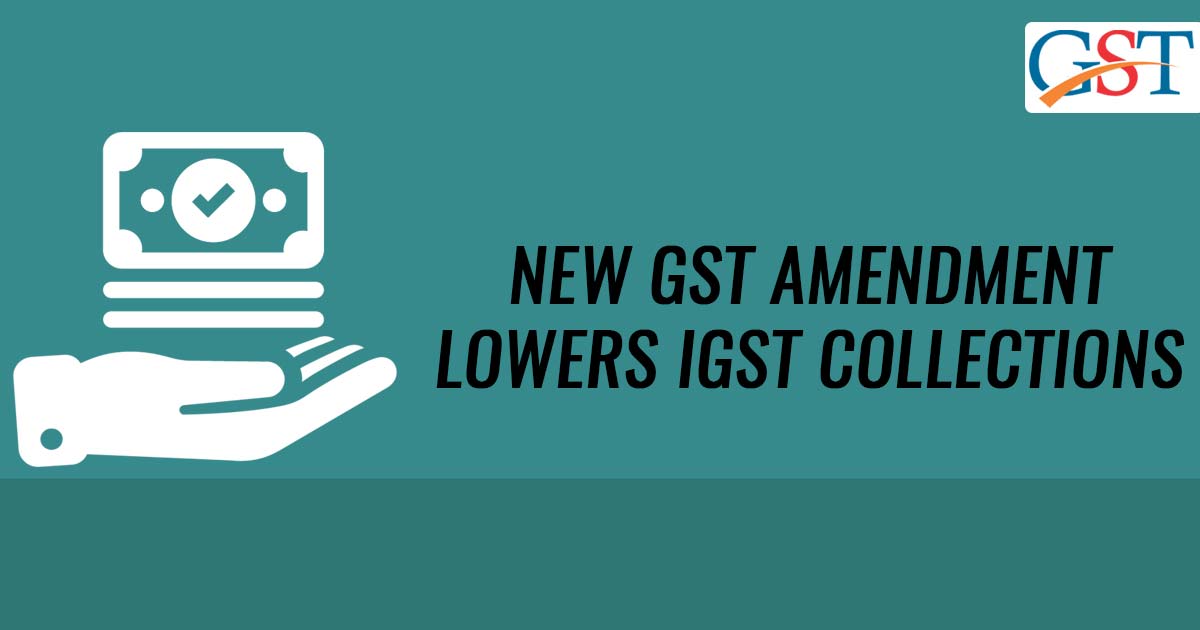IGST is levied on the interstate supply of goods and services as well as Indian imports and exports. Exports are zero-rated under the IGST Act. The IGST accrues after reaching a substantial figure are divided 50:50 between the center and the state. Till now the IGST settlements amounting to Rs 50,000 crore in June and Rs 35,000 crore in February has been made. The latest distribution for August will reportedly amount to 12000 Crore. This is a considerable reduction in IGST accrues. Experts believe one key reason for this is timely tax return filing and payments by taxpayers. Also, taxpayers are now using accrues from IGST to pay taxes.
Reportedly, Rs 6,000 crore in the current Rs 12,000 crore August IGST accrues will go to the Central Government and the remaining amount will be distributed proportionally depending upon the respective states revenue collection in August.
The IGST is distributed on a periodical basis to compensate states for tax losses owing to transition from the VAT model to the GST model. This compensation was part of the agreement between the Centre and Indian States for GST implementation. Further, CESS on luxury and other goods under GST contribute prominently to the IGST Pool.
However, tax experts say that the sudden fall in IGST accrues can be traced to the new GST amendments brought into effect earlier this month. These amendments ensure IGST credits (imports included) are first used to settle any outstanding tax amount under IGST/CGST/SGST. This is a welcome move as it now allows hassle-free prompt IGST accrue distribution between Centre and State without needing the approval of the GTS Council as was the case before.
Some positives of the new amendment include:
- IGST Funds will now not lie idle with Centre. A good portion of unmarked IGST will now be allocated to states instantly.
- The state will get greater time revenue.
- The IGST distribution is now more transparent and agile.
A ‘nil’ IGST Pool balance is most desirable but some balance will always be reflected owing to the inability of some taxpayers/traders and businesses to claim ITC. This unclaimed ITC automatically gets added to the IGST Pool. However, it is hoped that the new amendments will bring IGST pool amount to minimal as well as ensure that state revenue remains uncompromised post the amendments. As per reports, the total GST accrue for July was Rs 96,483 crore. This was a near gain of more than 3000 crores from June. GST collections for June were Rs 95,610 crore. The August accrues data are awaited and will be released on September 1st.











WE ARE IMPORTING RAW CASHEWNUT UNDER CIF TERMS AGAINST ADVANCE AUTHORIZATION LICENCE AS WELL AS PAYING IGST, WHICH MEANS COST INCLUDING FREIGHT AS WELL AS INSURANCE. IF WE PAID IGST ON GOODS I.E.RAW CASHEW AGAIN WE HAVE TO PAY IGST ON SHIP FREIGHT ON THE SAME PURCHASE, IF SO THE SERVICE IS KNOWN AS COMPOSITE SUPPLY OR NOT. MOREOVER, LOCAL AUTHORITIES INSISTING TO PAY IGST ON SUCH FREIGHT UNDER RCM AS 10% OF THE CIF VALUE WILL BE TREATED AS TAXABLE VALUE ON THAT 5% OF IGST TO BE PAID UNDER RCM.
WHETHER THIS WILL LEAD DOUBLE TAXATION OR NOT. AND WE ALSO GOT THE FREIGHT AMOUNT FROM OVERSEAS SUPPLIER WHICH COMES NEARLY TO 1 TO 2% OF THE CIF VALUE. KINDLY ASSIST ON THIS ISSUE AND HOW WE CAN COMMUNICATE WITH GST COUNCIL TO TOOK UP THIS MATTER AS THIS WILL MAKE US MORE WORKING CAPITAL BLOCKAGE NOT ONLY TO US BUT MORE OF SME UNITS
Imports under the Advance Authorization scheme are subject to double taxation as IGST to be paid on import of goods plus freight on services of transportation of goods from non-taxable territory are subject to IGST @5% under RCM. The same has also been pronounced in a recent advance authority ruling, Uttarakhand. For this issue, please raise a complaint to GST council.